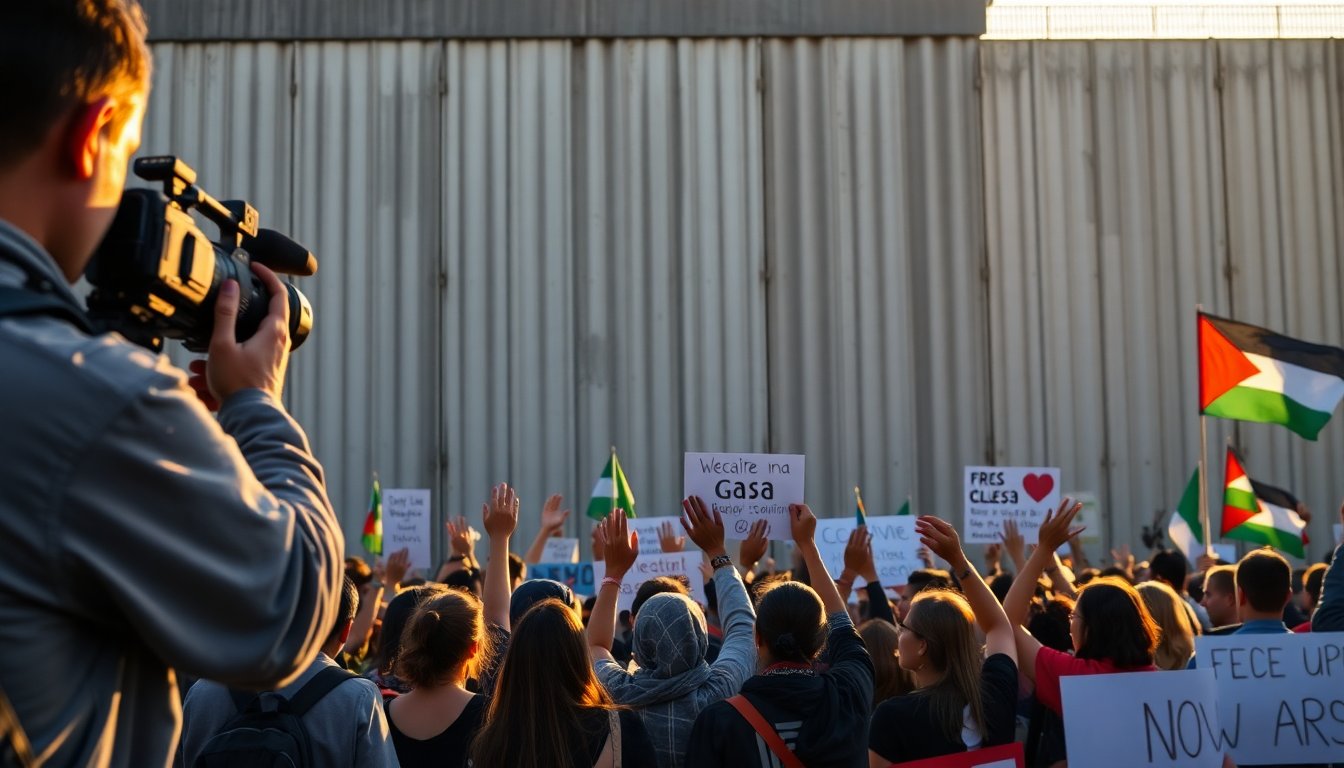Table of Contents
This weekend, Mélissa Camara, a member of the European Parliament representing France, is expected to be released from a high-security facility in Israel. She was detained for four days due to her participation in the Global Sumud Flotilla, organized to deliver essential humanitarian supplies to the beleaguered region of Gaza, which has been under a strict blockade.
According to an aide, Camara’s detention at Ktzi’ot prison was without signs of mistreatment. The French consulate is prepared to provide her support upon her deportation to Jordan.
The flotilla’s mission and details
The flotilla included 479 activists, featuring notable figures such as climate advocate Greta Thunberg. Their goal was to navigate through the naval blockade imposed by Israel to deliver vital aid to the people of Gaza. However, Israeli authorities intercepted their vessels near the coast, leading to significant opposition.
Comprising 42 boats filled with supplies, the flotilla aimed to address the humanitarian crisis in Gaza. Since the blockade began, many residents have faced dire shortages of food, medical supplies, and other essentials. Activists have alleged mistreatment during their detention, but Israeli officials have categorically denied these claims.
Response from the European Parliament and concerns for Camara
Following the announcement of her release, Camara’s aide expressed immense relief. “This is a huge relief for her family, for her friends, and for her team, four days after the illegal kidnapping the flotilla crew was subject to near the Gaza coast,” the aide remarked. They expressed hope that Camara would return to France soon and in good condition.
Bas Eickhout, co-leader of the Greens in the European Parliament, previously voiced concerns about Camara’s wellbeing. He urged Parliament President Roberta Metsola to ensure any necessary support for her. This situation underscores the ongoing tension surrounding humanitarian missions in conflict zones.
Current events in Gaza and international reactions
Camara’s release coincides with a significant ceasefire agreement that has allowed thousands of displaced individuals from Gaza to begin returning home. Brokered by U.S. President Donald Trump, this ceasefire marks a pivotal moment in a conflict that has had devastating consequences.
As part of the ceasefire’s initial phase, Hamas is expected to release 48 Israeli hostages, while Israel will reciprocate by freeing approximately 2,000 Palestinian prisoners and reopening humanitarian aid routes to Gaza. The humanitarian crisis in the region has reached staggering proportions, with reports indicating that over 67,000 individuals have lost their lives since the conflict escalated two years ago, a significant portion of whom are children.
Upcoming international summit on Gaza
In light of these developments, several global leaders, including Italian Prime Minister Giorgia Meloni, Spanish Premier Pedro Sánchez, and French President Emmanuel Macron, are slated to participate in an international summit focusing on Gaza in Egypt. This summit aims to address the ongoing humanitarian crisis and promote dialogue among nations to find a sustainable resolution.
As the situation evolves, it becomes increasingly crucial for the international community to remain vigilant and supportive of humanitarian efforts while navigating the complexities of geopolitical interests. Recent events surrounding Mélissa Camara serve as a poignant reminder of the challenges faced by those advocating for peace and aid in conflict zones.


